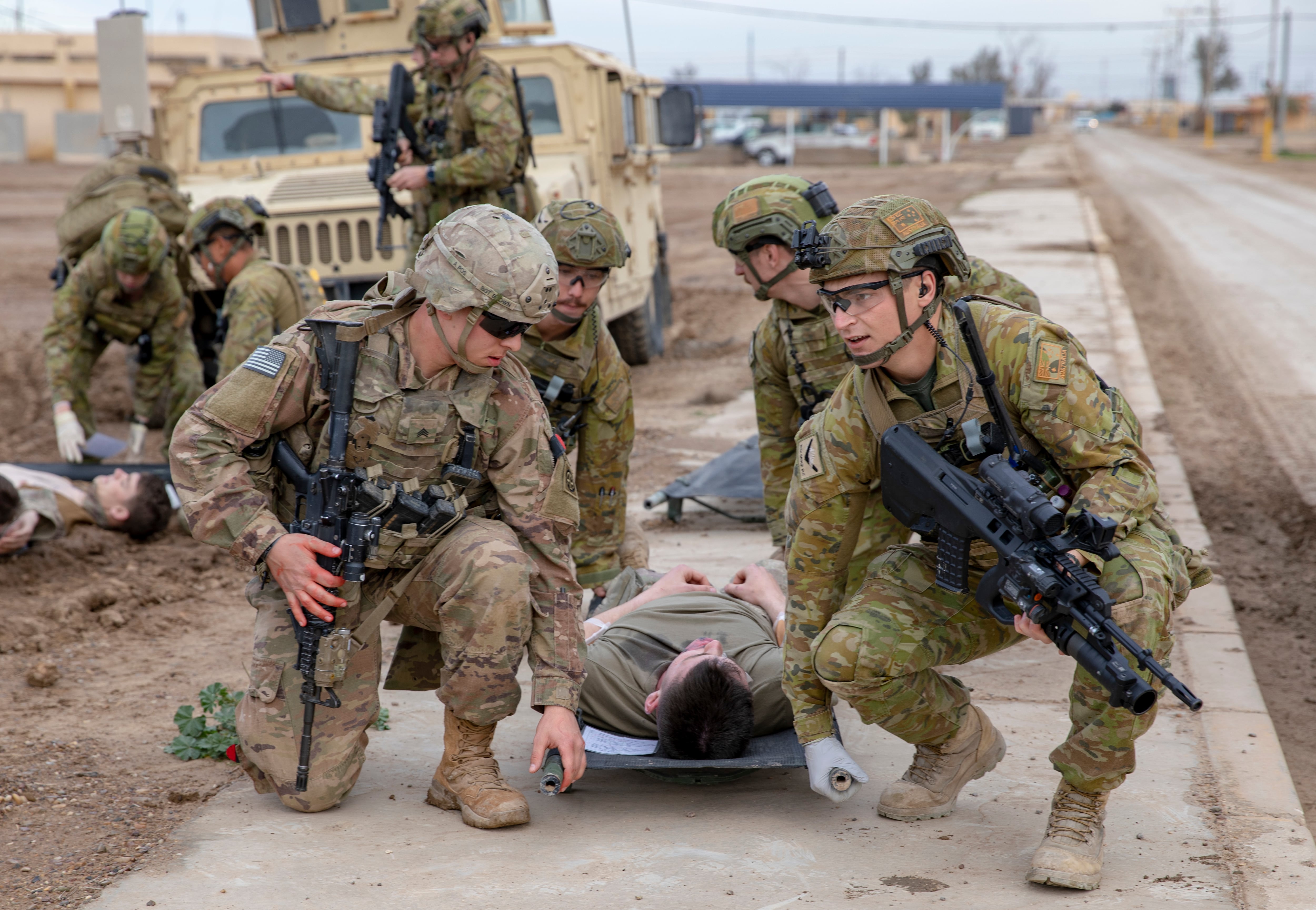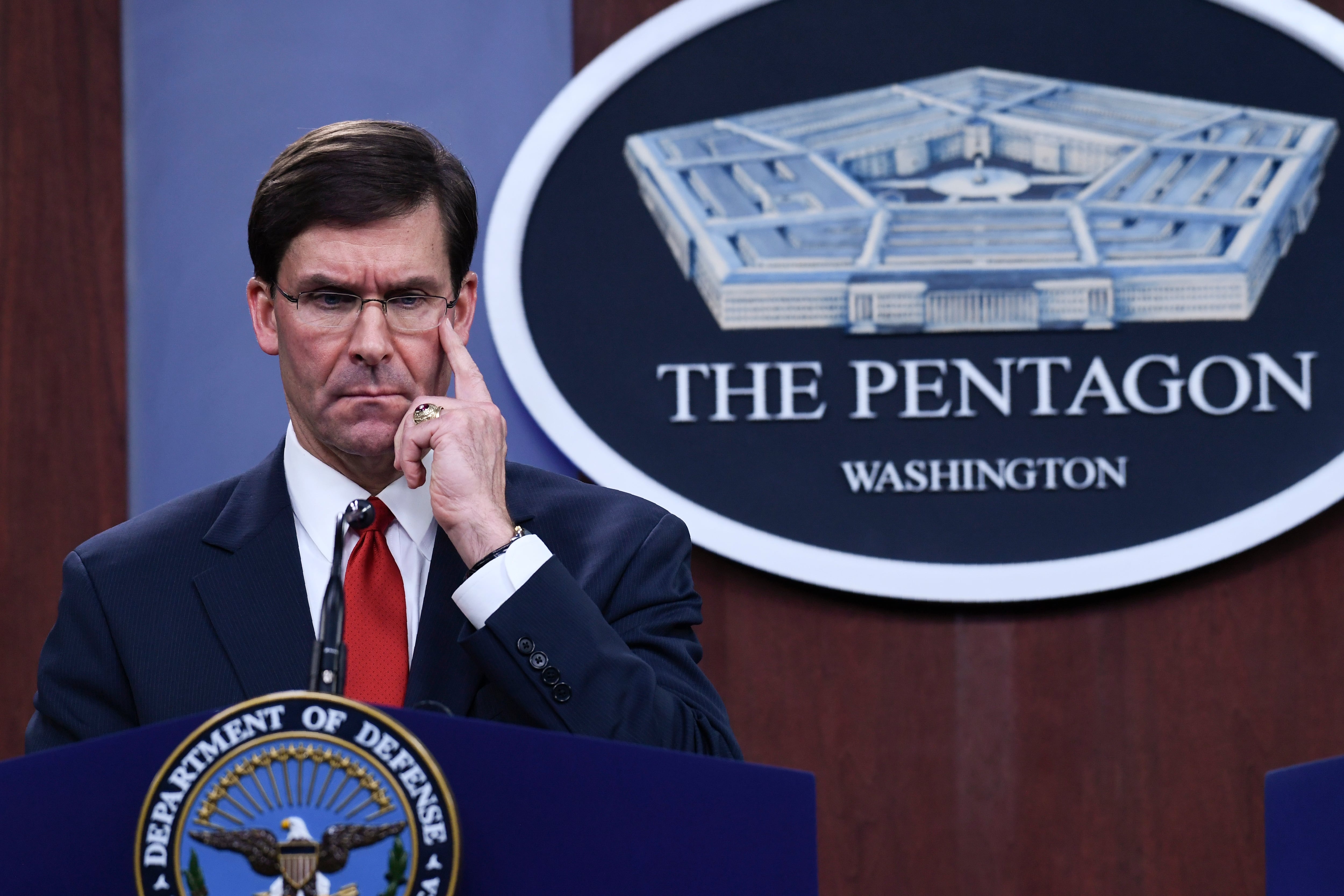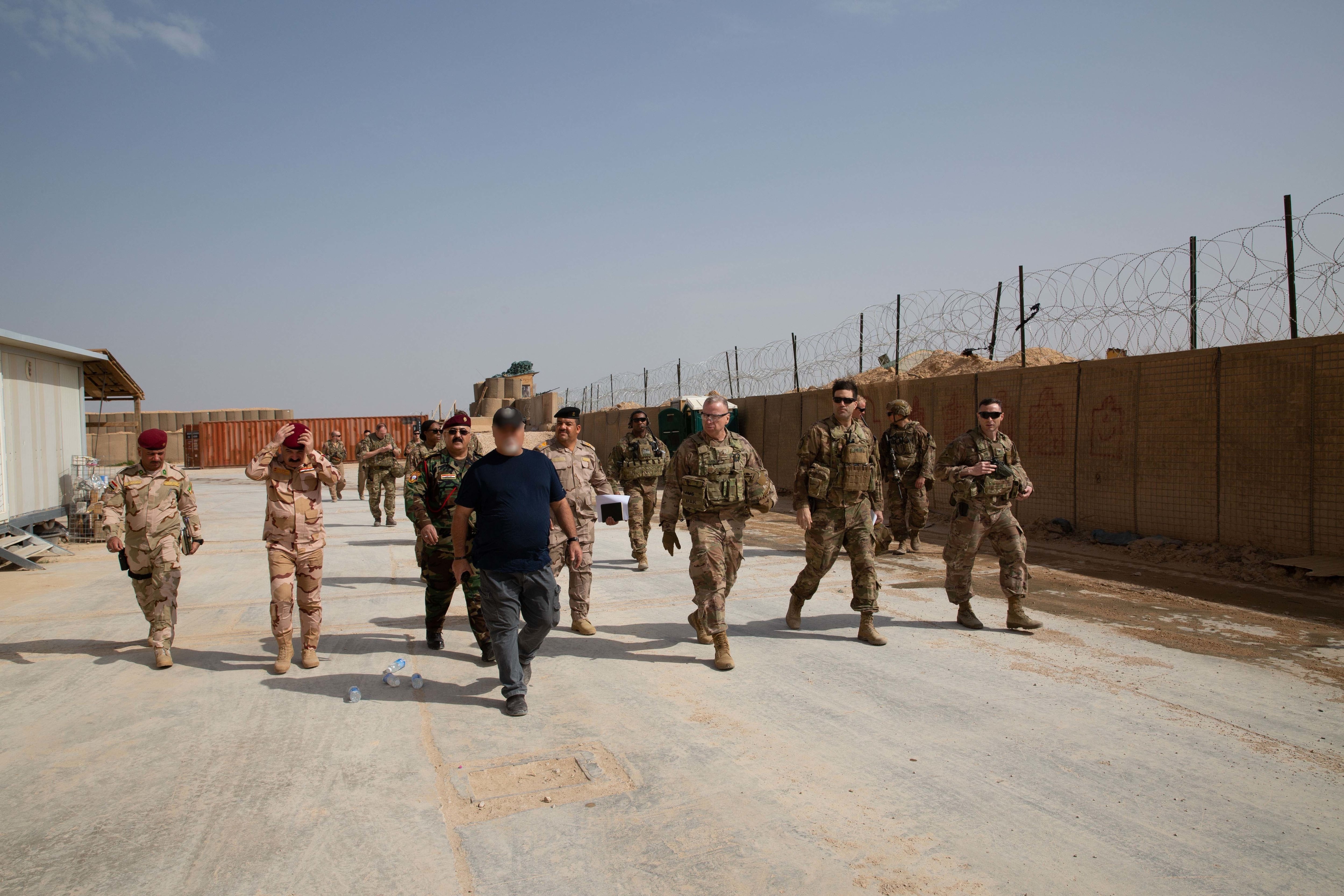The U.S. military announced Tuesday it had handed over a strategic outpost near the Iraq-Syria border to Iraqi forces in a region known to host an Iran-backed militia responsible for more than a dozen rocket attacks targeting coalition troops.
Two experts who spoke to Military Times worry the base nestled near a key border crossing area could fall into the hands of the Iran-backed group — cementing what national security experts have warned is Tehran’s goal of a land route to the Mediterranean Sea for the movement of arms, proxies and illicit goods.
Officials with Operation Inherent Resolve — the U.S.-led mission to defeat ISIS in Iraq and Syria — say the al-Qaim base transfer is about consolidating coalition forces following successful operations against ISIS militants.
“Today marks a historic moment for the Combined Joint Task Force Operation Inherent Resolve and our Iraqi Security Partners,” Brig. Gen. Vincent Barker, OIR director of sustainment, said in a release.
“Al Qaim base served as a critical location in the fight against Daesh. First, as the Iraqi Security Forces liberated the Al Qaim region from an evil presence, and later as a valuable base during the Battle for Baghouz, the last physical territory held by ISIS. Today’s transfer is possible thanks to the efforts and successes of our ISF partners," Barker said in the release.
But the base transfer follows two recent rocket attacks targeting an Iraqi base housing coalition troops known as Camp Taji. A rocket attack on March 11 resulted in two U.S. troops and one U.K. service member dead. On March 14, a barrage of 107 mm rockets wounded several American troops.
RELATED

Rocket attacks since October 2019 have precipitated a deadly tit-for-tat escalation between an Iran-backed group known as Kataib Hezbollah and U.S. forces. A rocket attack that killed an American contractor and wounded several U.S. troops in December 2019 in Kirkuk nearly led to a war with Iran.
Charles Lister, a senior research fellow and director of Countering Terrorism and Extremism Program at the Middle East Institute, tweeted Tuesday Kataib Hezbollah may take over the base following the U.S. departure.
“Who wants to bet that 6 months from now, #Iran-backed militias will be the “ISF” [Iraq security forces] in command of al-Qaim base?,” Lister tweeted.
“#IRGC-linked [Islamic Revolutionary Guard Corps] militias already have a sizable presence around al-Qaim, not to mention controlling the other side of the border, in #Syria’s al-Bukamal/Imam Ali Base etc.,” Lister tweeted.
Kataib Hezbollah has an extensive network across the Anbar province in Iraq, according to Phillip Smyth, a research fellow for the Washington Institute and Iran expert.
The Shia militant group has been known to operate in al-Qaim, Abu Kamal and along Route 1 that runs through Anbar province, Smyth told Military Times.
Smyth told Military Times he was sure the base would fall to the Iran-backed group, warning that the militants already had “defacto” control. “Once we’re out, they’ll be there,” Smyth said.
Lister told Military Times that Kataib Hezbollah controls the Syria border crossing near al-Qaim.
“They’re the key PMU [popular mobilization unit] player around al-Qaim, arguably out-influencing the Iraqi Army’s 8th Division, which is technically al-Qaim-based,” Lister said.
Following the Dec. 27 rocket attack against Kirkuk, American warplanes launched retaliatory strikes hitting a Kataib Hezbollah headquarters located in al-Qaim.
The airstrikes sparked an escalation that led to a standoff at the U.S. embassy in Baghdad, a decapitation strike against Quds Force commander Qassem Soleimani, and a ballistic missile strike by Iran targeting coalition troops housed at two Iraqi bases.
U.S. Central Command has struggled to protect and respond to the rocket attacks that continue unabated despite numerous threats from U.S. officials towards Tehran and its proxies.
The coalition has come under criticism for not fielding counter rocket, artillery, and mortar, or C-RAM systems at Iraqi bases, especially Camp Taji, which has been the target of multiple rocket attacks.
C-RAM systems can be used to defend bases from indirect fire and mortars, but Marine Gen. Kenneth McKenzie Jr., the CENTCOM commander, explained they’re often used to bolster the defense of Patriot systems.
Patriot missile batteries are moving into Iraq to help counter a potential Iran ballistic missile strike.
Camp Taji, the Iraqi base hit by 18 rockets on March 11, did not have a C-RAM system. McKenzie told reporters that CENTCOM has to “ruthlessly prioritize” where it places defensive equipment because there are more troops than systems and assets available to protect everyone.
McKenzie said it was an “unpleasant fact” but the U.S. “can’t have C-RAM everywhere.” The CENTCOM commander also noted that the C-RAM is “not a panacea.”
RELATED

On March 13, McKenzie said the threat from Iran “remains very high” following the latest rocket attack against coalition forces involving an Iran-backed Shia militia.
OIR said coalition troops would leave al-Qaim in the coming days following the transfer of equipment to Iraqi forces.
OIR detailed in a release it was handing over roughly $900,000 worth of equipment to Iraqi forces that includes container housing units, water tanks, generators, tents and barriers.
The coalition said it will continue to consolidate forces from smaller bases across Iraq throughout 2020.
Shawn Snow is the senior reporter for Marine Corps Times and a Marine Corps veteran.




